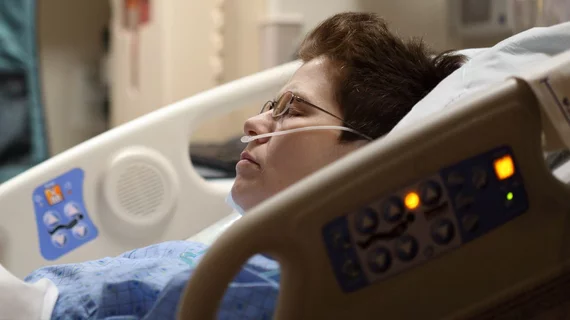Facial recognition technology can be used to monitor sedated patients in intensive care units, alerting healthcare workers when a patient is at risk of accidentally removing a breathing tube or engaging in other risky behavior.
The concept was proven out with a moderate level of accuracy—75%—in a Japanese study in which scientists trained an algorithm on 99 images from cameras aimed at the faces of 24 patients in the ICU.
The study was presented June 3 at the annual meeting of the European Society of Anaesthesiology in Vienna.
Lead author Akane Sato from Yokohama City University and colleagues tested their technique on 99 images of 24 post-op patients.
According to a press release disseminated from the conference, they built their tool to recognize signs of high-risk arm movement after analyzing data on facial expressions and eye movements.
Moderate to heavy sedation is common in ICU settings, they pointed out, and its use can make for difficult patient monitoring, especially when nursing units are staffed below optimal staffing levels.
“Various situations can put patients at risk, so our next step is to include additional high-risk situations in our analysis, and to develop an alert function to warn healthcare professionals of risky behavior,” Sato said. “Our end goal is to combine various sensing data such as vital signs with our images to develop a fully automated risk prediction system.”
The team said it will need to work with ICU patients lying in a variety of positions in order to make the tool generalizable to everyday ICU settings.
They further noted that their approach would benefit by additional monitoring of patients’ consciousness, as those closer to wakefulness are more likely to accidentally endanger their own safety.
Still, their novel use of facial recognition software to improve care of woozy patients shows promise.
“We were surprised about the high degree of accuracy that we achieved, which shows that this new technology has the potential to be a useful tool for improving patient safety,” Sato said.

